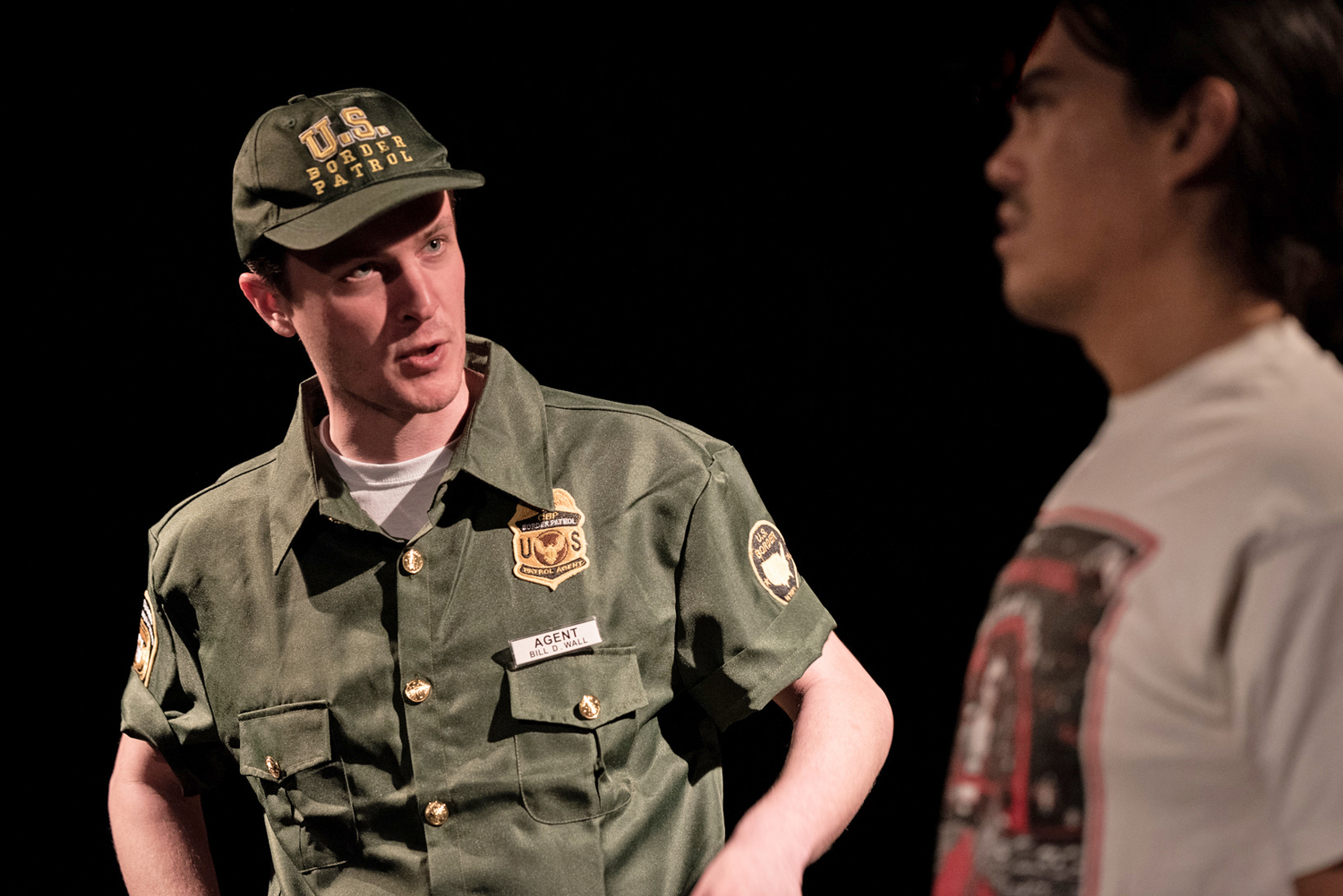Review: BOUND contemplates Native sovereignty amidst escalating tensions at the border wall

Marigold Page is a Tohono O'odham woman. She is also an activist working with her tribe to resist a wall being built across their Nation. She meets John Morales-Rio, a Native land surveyor working in the southern U.S. and Mexico. He is smitten and charms her into a spontaneous picnic. Why this particular career? His family has a history of protecting their lands and ensuring that the most sacred sites are protected for generations to come. John tells Marigold, "I feel BOUND to it."
Writer and Director Tara Moses is a citizen of the Seminole Nation of Oklahoma. American Indian Artists, Inc. (AMERINDA) works to foster intercultural understanding of Native culture. Located in New York, this multi-arts organization is the only one of its kind in the United States. Amidst our current political circus regarding our border with Mexico, BOUND makes us contemplate boundaries in a refreshingly interesting way.
The Gadsden Purchase of 1853 was signed by Mexican President Antonio López de Santa Anna and James Gadsden, the U.S. Ambassador to that country. The westward railroads were being built and the land was coveted for such development. No one seemed to care that the new border would split this particular tribe across two different countries.
John has been hired to assist an oil company now looking to develop a pipeline through their long-bequeathed lands. His intentions are well-meaning. By participating in the process, perhaps the most sacred sites can be spared. Both John and Marigold are finding it harder to get to work these days. The additional border security adds significant delays traversing through the boundaries of their Nation.
This play fluidly alternates between the current day struggles of John and Marigold back to the conflicts experienced by White River and Tall Woman in 1853. Both generations are played by Dylan Carusona and Elizabeth Rolston. The characters are not deeply written but both actors manage to imbue them with charm and sense of purpose.
While a good portion of BOUND focuses on the Native American experience, Ms. Moses intersperses her story with historical reenactments. Scenes with key historical figures such as President Franklin Pierce and his Secretary of War Jefferson Davis give historical perspective. The economic hunger of America as a young, aggressive nation hell bent on colonization is dramatized. The oil industry's encroachment is represented as the same story all over again.
Other scenes from today's headlines are equally highlighted. Snippets from television reporting are recreated such as the coverage of the Standing Rock Sioux tribe's pipeline protests. The Border Patrol repeats what we've all heard before: "many of them are drug cartels, murderers and rapists." As the White Chorus Man, Nicholas Stauffer was especially effective in successfully inhabiting these different characterizations.
"No one is illegal on stolen land" may be the belief (or the dream) but reality seems to suggest otherwise. Centuries of warring native tribes had to come together when a new, better armed and financed tribe came to conquer. Capitalism is represented as an evolutionary step after tribalism. Countries became greater than tribes. Are we now in a period where corporations and money are becoming greater than countries?
BOUND, the play, is full of ideas. The material itself contains fairly average dialogue but it did inspire some thoughtful contemplation. Is the history of white European colonists in North America any different than those who drew imaginary lines and split tribes haphazardly in the Middle East?
For a very small scale play presented in an East Village basement on a shoestring budget, I felt engaged. That is commendable. When a cultural institution is engaged in making the world see their truth through a different lens, that is meaningful theater. BOUND could certainly be a better play than it is today. As a white European second generation descendant from immigrants, I have to agree that America could certainly be more compassionate than it is today.
Add Your Comment
Videos

